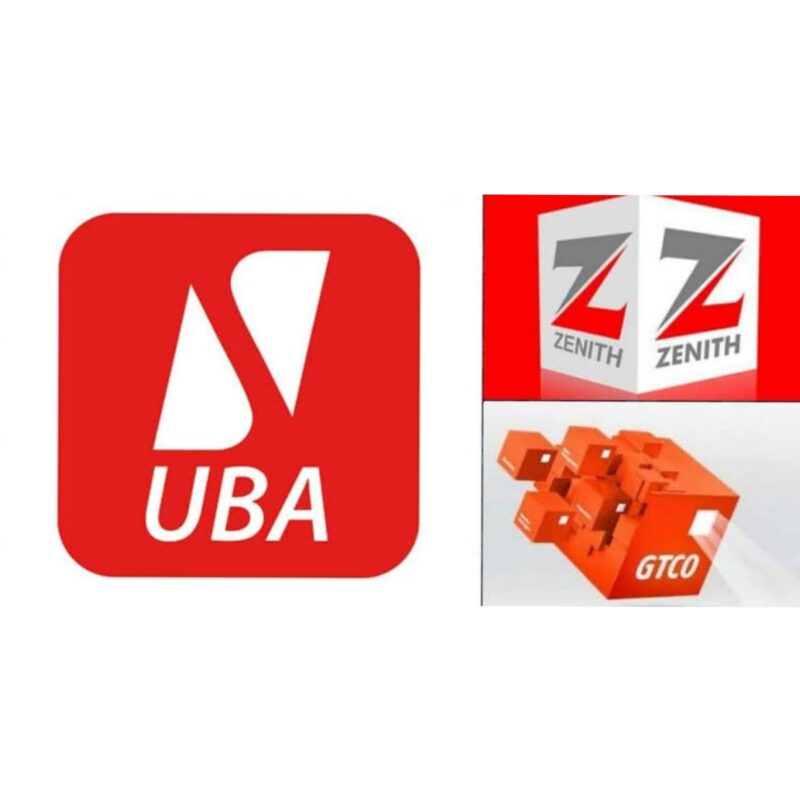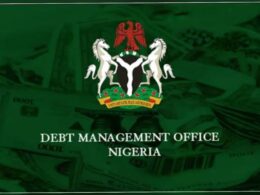Despite the payments made, government projections estimate that banks still owe approximately N600 billion in windfall tax. An insider disclosed that authorities expect to generate up to N1 trillion from the levy, with some banks yet to complete their payments.
Abuja,Nigeria – Six Nigerian banks have collectively paid N205.59 billion as windfall tax in 2024, underscoring the failure of lobbying efforts to secure a reduction in the levy imposed by the federal government.
According to audited financial statements submitted to the Nigerian Exchange Limited, the affected banks—Zenith Bank, United Bank for Africa (UBA), Fidelity Bank, Wema Bank, Stanbic IBTC Holdings, and Guaranty Trust Holding Company (GTCO)—have begun complying with the tax regulation.
Breakdown of Payments
Zenith Bank led the contributions with a payment of N63.31 billion, followed by UBA at N57.91 billion. UBA clarified that its payment covered the financial years 2023 and 2024, allocating N24.819 billion to 2023 and N33.092 billion to 2024. GTCO remitted N51.25 billion, while Stanbic IBTC Holdings paid N17.18 billion. Fidelity Bank contributed N13.33 billion, with N5.71 billion attributable to 2023 financial gains. Wema Bank, in its report, confirmed a payment of N2.62 billion, representing about three percent of its N102.52 billion profit before tax.
Origins of the Windfall Tax
The windfall tax was introduced through the Finance (Amendment) Act 2023, which was signed into law by President Bola Tinubu in August 2024. The legislation levies a 70 percent charge on realized foreign exchange (FX) gains recorded by financial institutions between 2023 and 2025 due to currency fluctuations prompted by the Central Bank of Nigeria’s (CBN) naira float policy.
This measure aims to bolster tax revenue as a share of the country’s gross domestic product (GDP), targeting an increase from 11 percent to 18 percent within three years. The government argues that banks reaped extraordinary profits from the naira’s devaluation in 2023, as FX gains from currency revaluation significantly boosted their earnings.
Banks Still Owe N600bn
Despite the payments made, government projections estimate that banks still owe approximately N600 billion in windfall tax. An insider disclosed that authorities expect to generate up to N1 trillion from the levy, with some banks yet to complete their payments.
Sources suggest that banking executives have engaged in extensive negotiations with the presidency and top government officials in a bid to lower the tax burden. The resistance stems from the National Assembly’s unexpected decision to allocate 70 percent of the levy to the federal government and only 30 percent to the banks.
Concerns Over Financial Stability
International rating agency Moody’s has expressed concerns over the potential negative impact of the windfall tax. In a report titled Nigeria’s Proposed Windfall Tax on Foreign Exchange Gains is Credit Negative for Banks, Moody’s warned that the tax could strain banks operating near regulatory capital thresholds. The agency noted that banks had reported record profits in 2023 primarily due to FX revaluation gains following the naira’s 37 percent depreciation in June 2023.
Criticism from Shareholders
Moses Igbrude, National Coordinator of the Independent Shareholders Association of Nigeria, criticized the government for imposing the tax while failing to support industries that suffered FX losses due to the same currency devaluation. He argued that taxation should be balanced and questioned whether the government would compensate companies negatively affected by the naira’s fall.
Igbrude also lamented the lack of adequate infrastructure and essential services such as security, power, and water, which banks must independently provide to maintain operations. “Each bank branch operates like a local government, bearing costs that should ideally be covered by public infrastructure. Taxing banks merely because they profited from a government policy is unfair,” he stated.










Join our Channel...